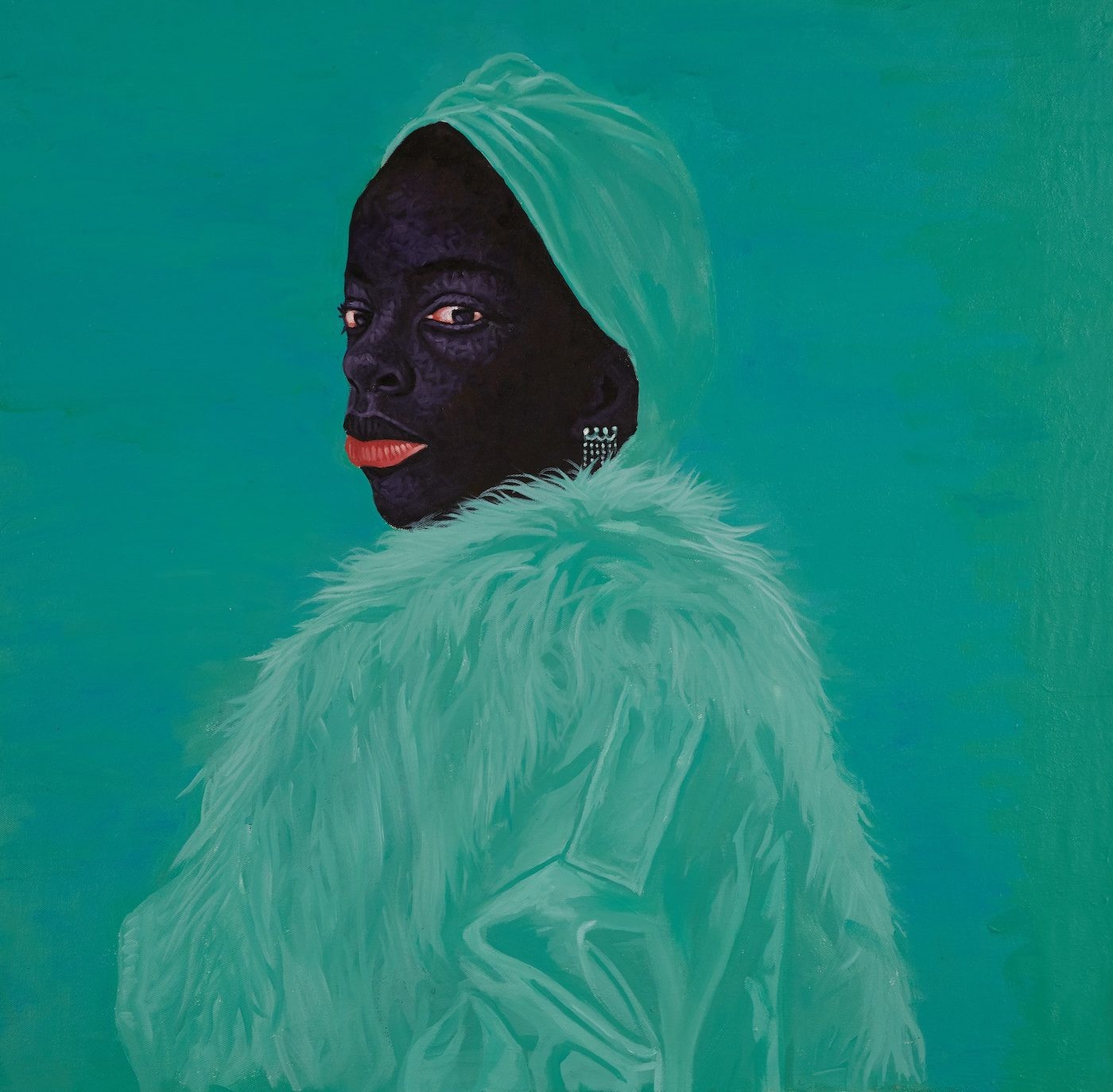Amplifying the Creative Structures at HKW
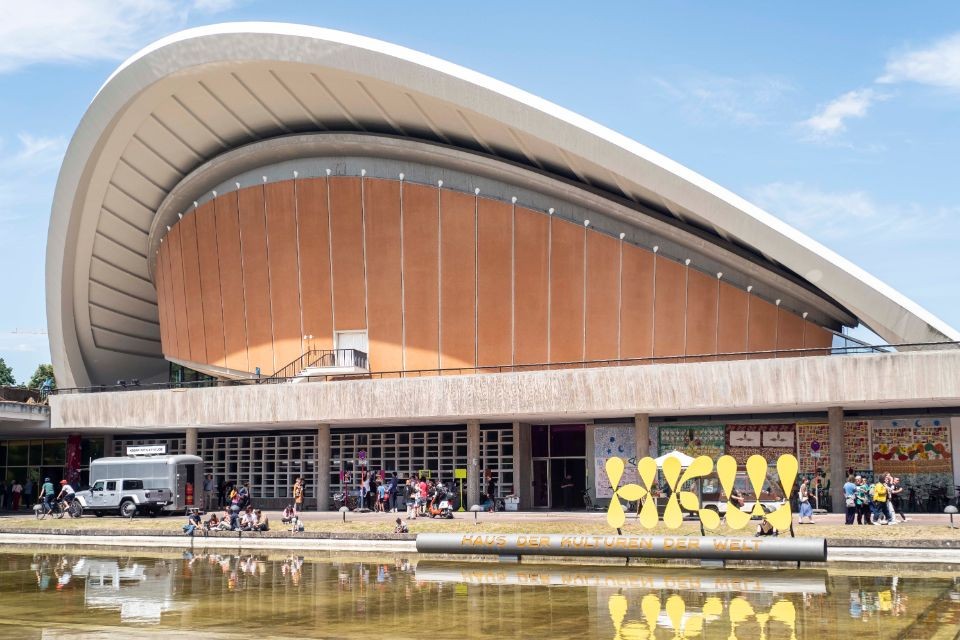
Edna Bonhomme examines how a Berlin institution pays tribute to anti-colonial feminists and applauds its new international team.
If there is one thing that radical feminists enjoy more than anything, it’s knowing they have been vindicated. Having a hall named after Nawal El Saadawi, the late Egyptian physician and writer who spent most of her life advocating for equal rights for women, at the Haus der Kulturen der Welt (HKW) in Berlin can be seen as beautiful vengeance on thosewho imprisoned her in the early 1980s.
In her memoir,A Daughter of Isis, El Saadawi wrote, “The written word for me became an act of rebellion against injustice exercised in the name of religion, or morals, or love.” In 1974, published when she was working as an official in Egypt’s Ministry of Health, her book Women and Sex candidly criticized female genital mutilation, a common practice in the country at the time. As an opponent of patriarchal politicians and fundamentalists, her activism was scrutinized,and she lost her government position. In 1981, President Anwar Sadat ordered El Saadawi’s arrest for “disrupting Egyptian democracy,” and she was imprisoned at Al Qanatir. Like many political prisoners, she wrote obsessively on whatever she could find—scribbling her autobiography with eyeliner on toilet paper. Writing was a tool she used against the threats of political and religious foes. So, when I saw her name etched on the eastern entrance of HKW, I believed this was a testament that her memory has outlived and outreached her adversaries.
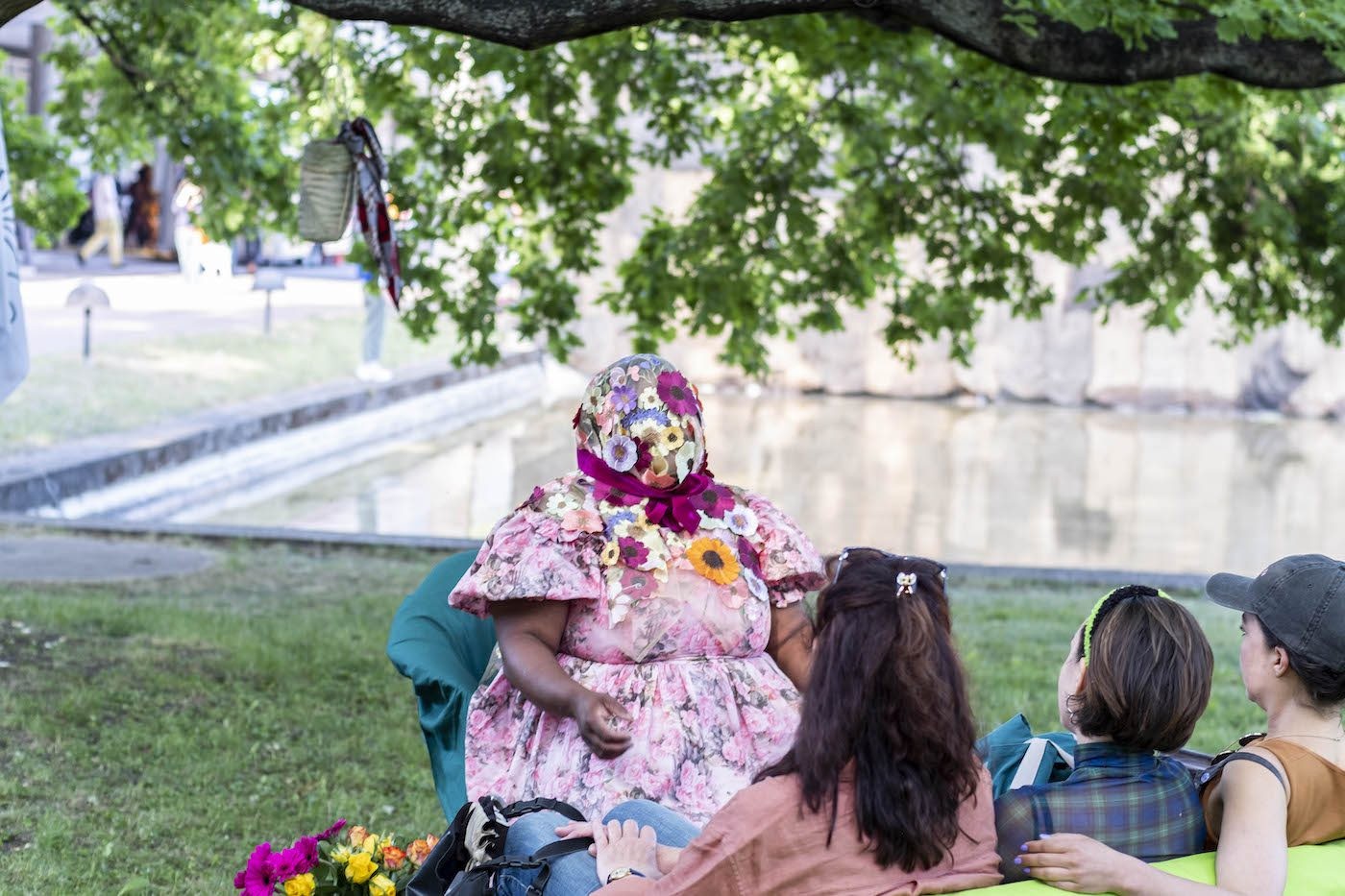
vanessa german, Hand in Hand: a love poem for togetherness, Performance as part of Acts of Opening Again:A Choreography of Conviviality, Haus der Kulturen der Welt (HKW), 3.6.2023. Courtesy the artists. Photo: Mathias Völzke/HKW
Several other anticolonial and anti-racist feminists have gained asemi-permanent status within the architecture of the HKW building since Bonaventure Soh Bejeng Ndikung took over as director in January. They include Afro-German writer Ika Hügel-Marshall, a founding member of the modern Black feminist movement in Germany, and Jamaican philosopher Sylvia Wynter, whose work has enlivened the Afropessimist movement. Whether or not people know or appreciate these women, their names here relay a message: that incendiary Black and brown intellectuals will rattle the cultural scene in Berlin.
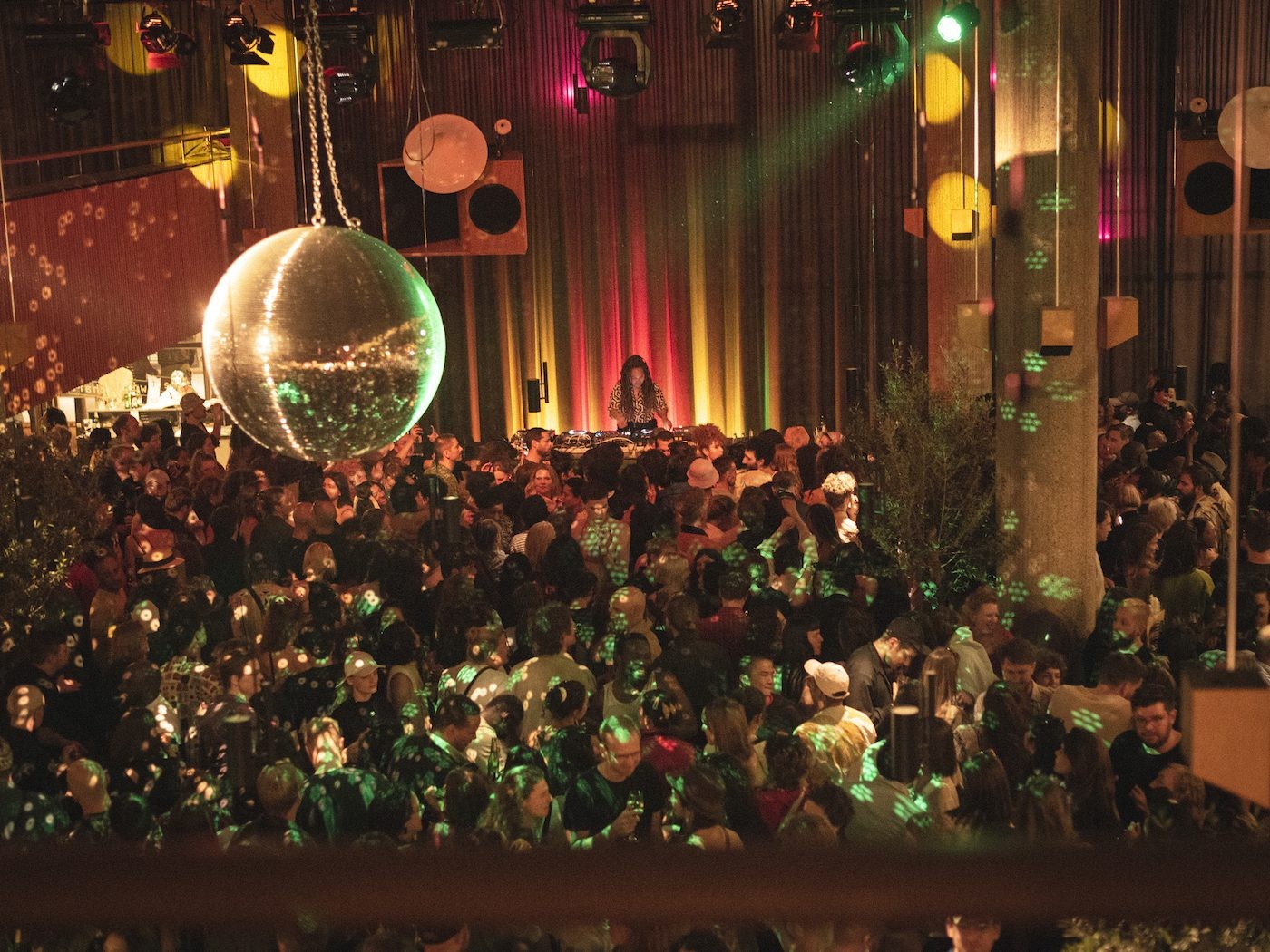
DJ Set by Edna Martinez,Sonic Pluriverse Festival, Congorama, Haus der Kulturen der Welt (HKW), 2.6.2023. Photo: Marvin Systermans/HKW
For an institution that claims to represent the world to function at its best, it depends on establishing a curatorial team that can connect meaningfully with people who have spent part of their lives outside of Germany, whether they were connected to emerging musique concrete collectives in Dar Es Salaam or somatic poets in Manila. When Ndikung began his tenure at HKW, he turned to curators and literary figures from the Global South. Some were already living in Europe; others were deeply immersed in contemporary art scenes elsewhere. Announcing the new curatorial team and program, Ndikung cited Paulette Nardal, a writer and journalist from Martinique who developed a Black literary consciousness. He said that the re-opening of the HKW would honor her legacy:
And let us work in joy. Whatever hurdles fall in our way, may our joy abound; this profound, inherent joy that the certainty of good that is being realized secures, and the conviction that all of us, able or infirm, exiled or not from active existence, can still be useful in our work. And no one will deprive you of this joy.
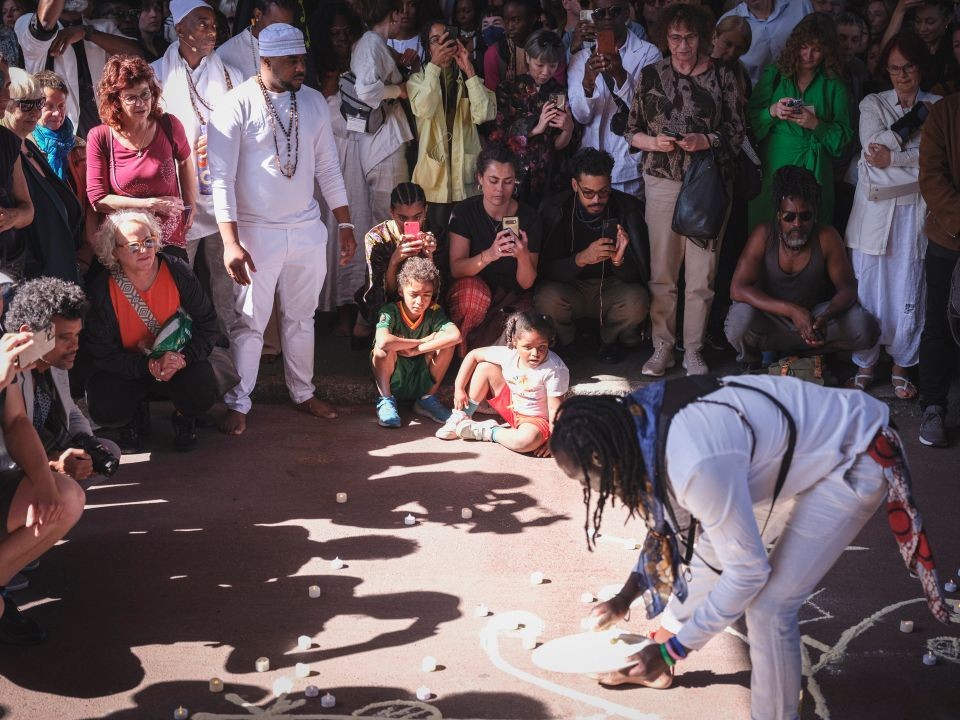
Houngan Jean-Daniel Lafontant with Claude Saturne, Invoking Papa Legba. Ceremonial opening in the course of Acts of Opening Again: A Choreography of Conviviality, Haus der Kulturen der Welt (HKW), 2.6.2023. Courtesy the artists. Photo: Marvin Systermans/HKW
When I spoke with Ndikung in late June, he spent the first five minutes trying to interview me. He asked, “Have you researched the origins of your surname?” I smiled wry, not because of his query but how he executed it. Most people who want to know why an Anglophone Black person has a French name are clumsy when they probe. Ndikung, unlike most people, approached the topic with poised curiosity. Griot-like, he seems open to vibrant possibilities. He told me, “I feel the force of gravity. I intend to be very grounded and continue doing the work we must do.” Ndikung and the curatorial team have been putting that energy into events that might appeal to the emergent demographics of a city increasingly home to African, Asian, and Caribbean Diasporas: the musical performances ofSonic Pluriverse Festival, a continuation of HKW’s summer concerts, andEchos der Bruderländer, a year-long examination of migration from the Global South to the German Democratic Republic before 1989.
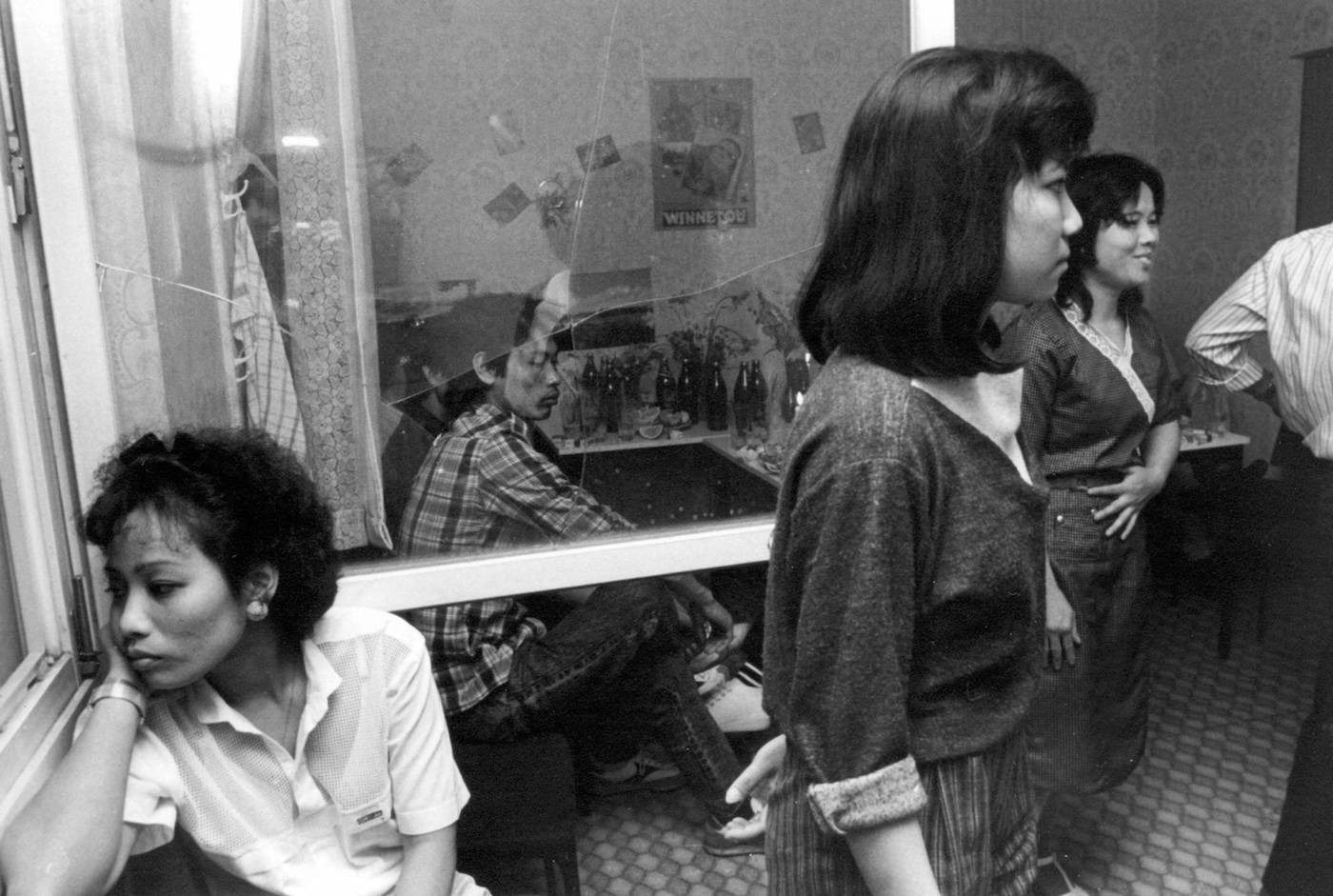
Birthday in the dormitory—contract workers from Vietnam in their accommodation in Dresden, GDR, February 1987. Part of Echos der Bruderländer. Photo: IMAGO/Matthias Rietschel
Ndikung is the first African-born director of HKW in its thirty-four-year history. When the institution was founded in 1989, it aimed to stand in distinction from conventional contemporary art museums in Berlin that had permanent collections of Euro-American objects. HKW was intended to focus on non-Western cultures and serve as a meeting ground for musicians, performers, and artists. While the work featured often reflected the wider world, the institution’s previous staff demography essentially did not; now, it appears to have a team that fully does. Later, Ndikung remarked, “I was trying to zoom in into a world, or to the world I know I was familiar with, to try to develop a practice from that space.”
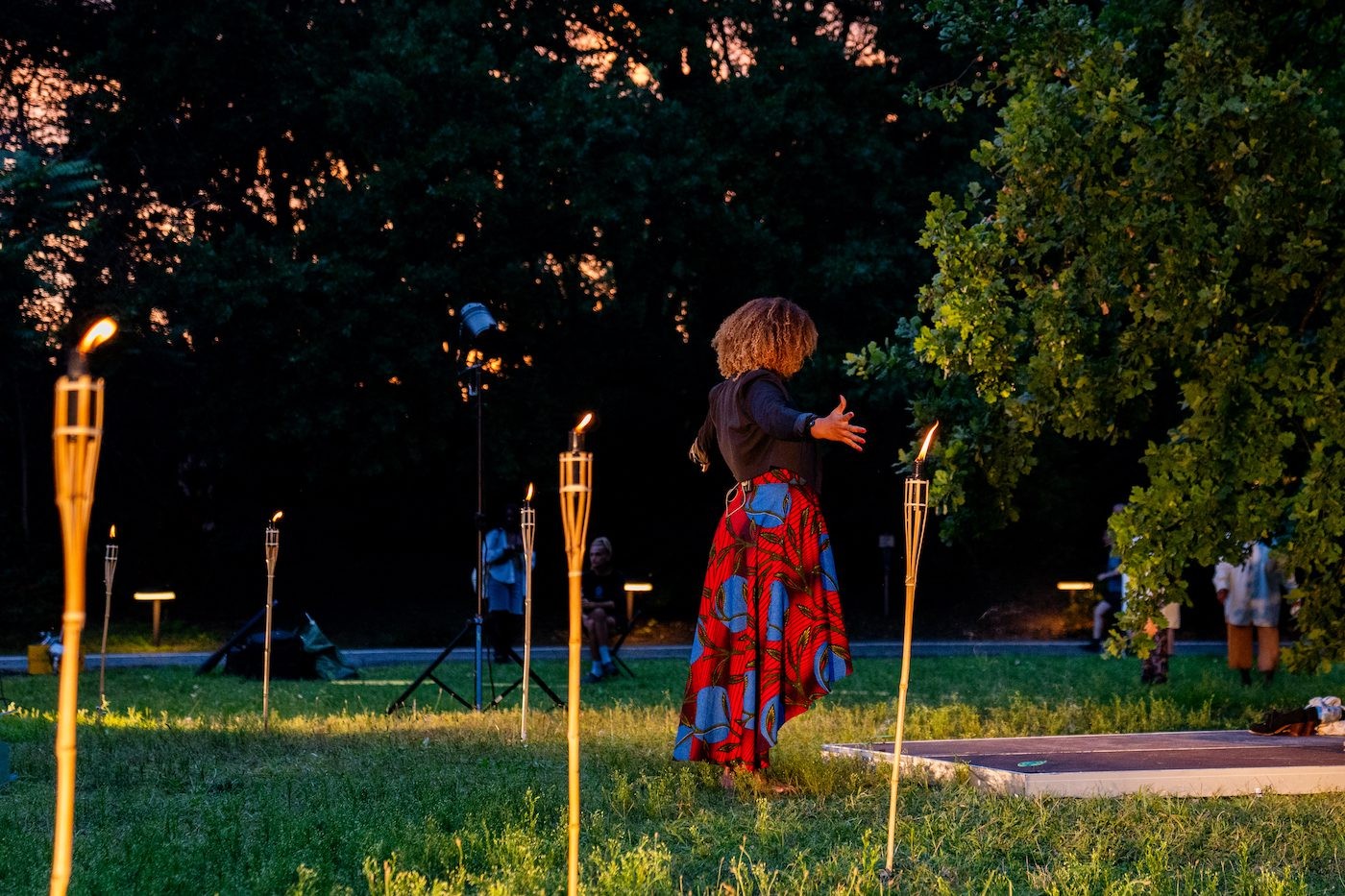
Phyllis Akinyi, I Come as a Woman, Dark and Open (2023), Performance, Bwa Kayiman—Congressing at the Heart of Liberation, Haus der Kulturen der Welt (HKW), 13.8.2023. Photo: Iris Wang/HKW
Their work, so far, reflects how artistic practices are omnipresent in Asian, African, and Latin American societies. In late August, HKW hosted Middle Ground, a literary festival and online platform based in Jamaica. Publishers, poets, and writers discussed the state of Caribbean writing today as a thriving and transnational movement that resonates beyond the region. Earlier that month, the institution celebrated the Haitian Revolution withBwa Kayiman, a formidable set of performances ablaze with music, speeches, and rituals. One highlight was Paul Toussaint, a Haitian-born chef who nourished HKW’s performers and guests throughout. The enslaved Africans who fought for that revolution adopted the emancipatory maxim tout moun se moun, that is, everyone is a person—emphasizing that we are all equal, but more specifically, no, human life is more important than another. This affirmation might not seem like an explicit act of defiance today, but in light of the criminalization of people from the Global South who try to cross the Mediterranean Sea, we know that everyone is not treated with the same humanity.
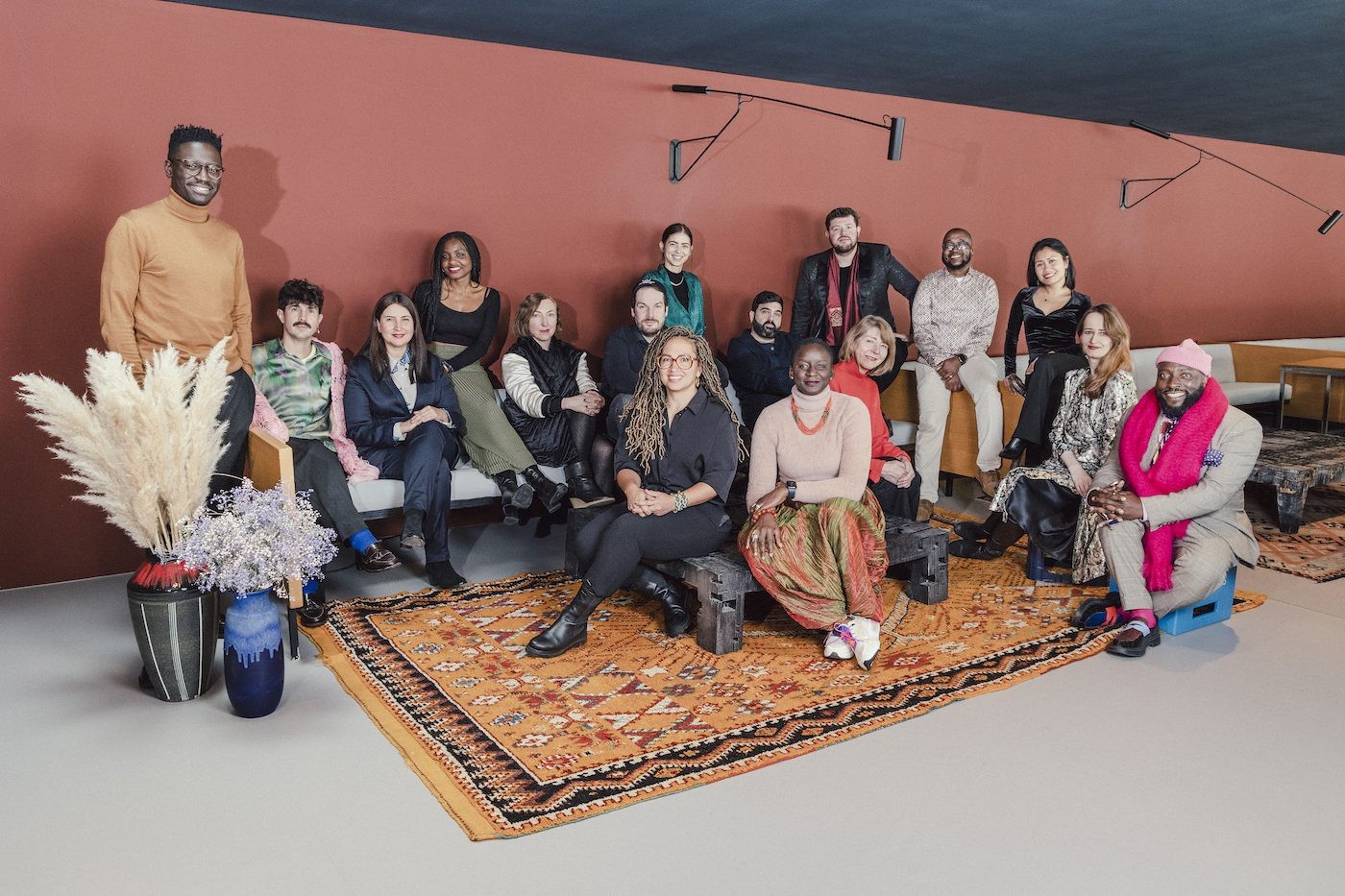
HKW Programme Team. F.l.t.r.: Eric Otieno Sumba, Carlos Maria Romero aka Atabey, Paz Guevara, Emilienne Fernande Bodo, Jill Winder, Max Czollek, Edna Martinez, Dr Sara Morais dos Santos Bruss, Can Sungu, Marie Helene Pereira, Eva Stein, Cosmin Costinaș, Dzekashu MacViban, Dr Rosa Cordillera A. Castillo, Henriette Gallus, Prof Dr Bonaventure Soh Bejeng Ndikung. Photo: Alexander Steffens/HKW
What particularly stands out to me withHKW’s new team is that non-German literature has played a central role in unsettling the boundaries of its reckoning with knowledge. Finding relics of a broader landscape in this institution is refreshing for those of us who had to learn about figures such as Wynter, El Saadawi, and Nardal. Near the end of our conversation, Ndikung reflected: “How do we transform this house into an archive that can carry certain knowledge about certain people that have been consciously erased from history?” Marking these people’s lives within the building’s architecture shows relentless attention to drawing their permanence.
HKW’s fall program aims to continue the festive spirit of its summer under new leadership. As many have noted, the whole community of people who furnish the creative arts in Berlin and beyond that recognition or praise is not due to one man’s labor alone. “To be creative,” El Saadawi once noted, “means to connect. It’s to abolish the gap between the body, the mind and the soul, between science and art, between fiction and nonfiction.”
Edna Bonhomme is a historian of science and writer based in Berlin, Germany. Edna’s essays critically engage with how people navigate the unsavory and unwieldy states of illness and health – especially how people contend with contagious outbreaks, medical experiments, reproductive assistance, and illness narratives. Her work has appeared in Al Jazeera, the Atlantic, the Guardian, the London Review of Books, and elsewhere.
Review
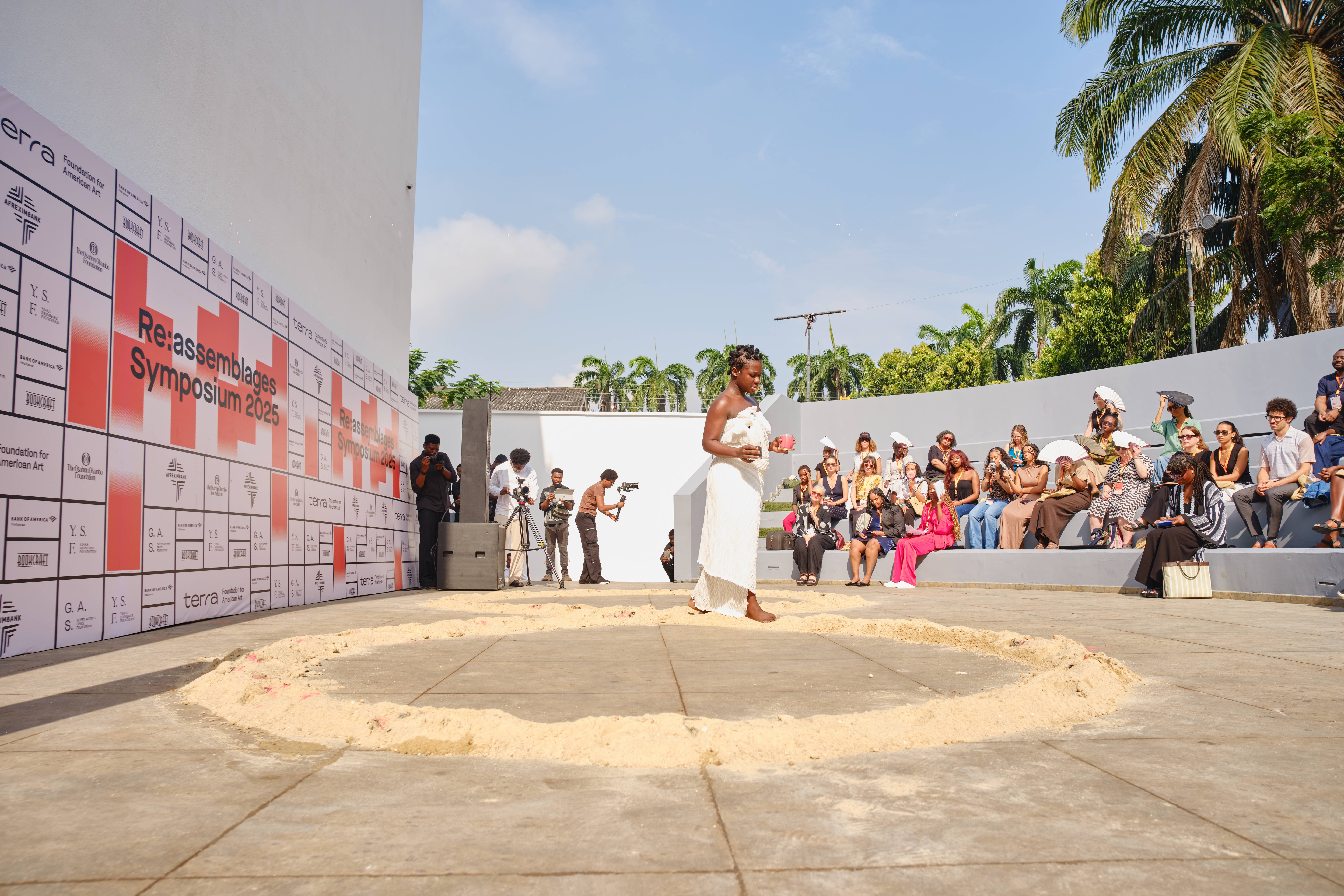
The Re:assemblages Symposium: How Might We Gather Differently?
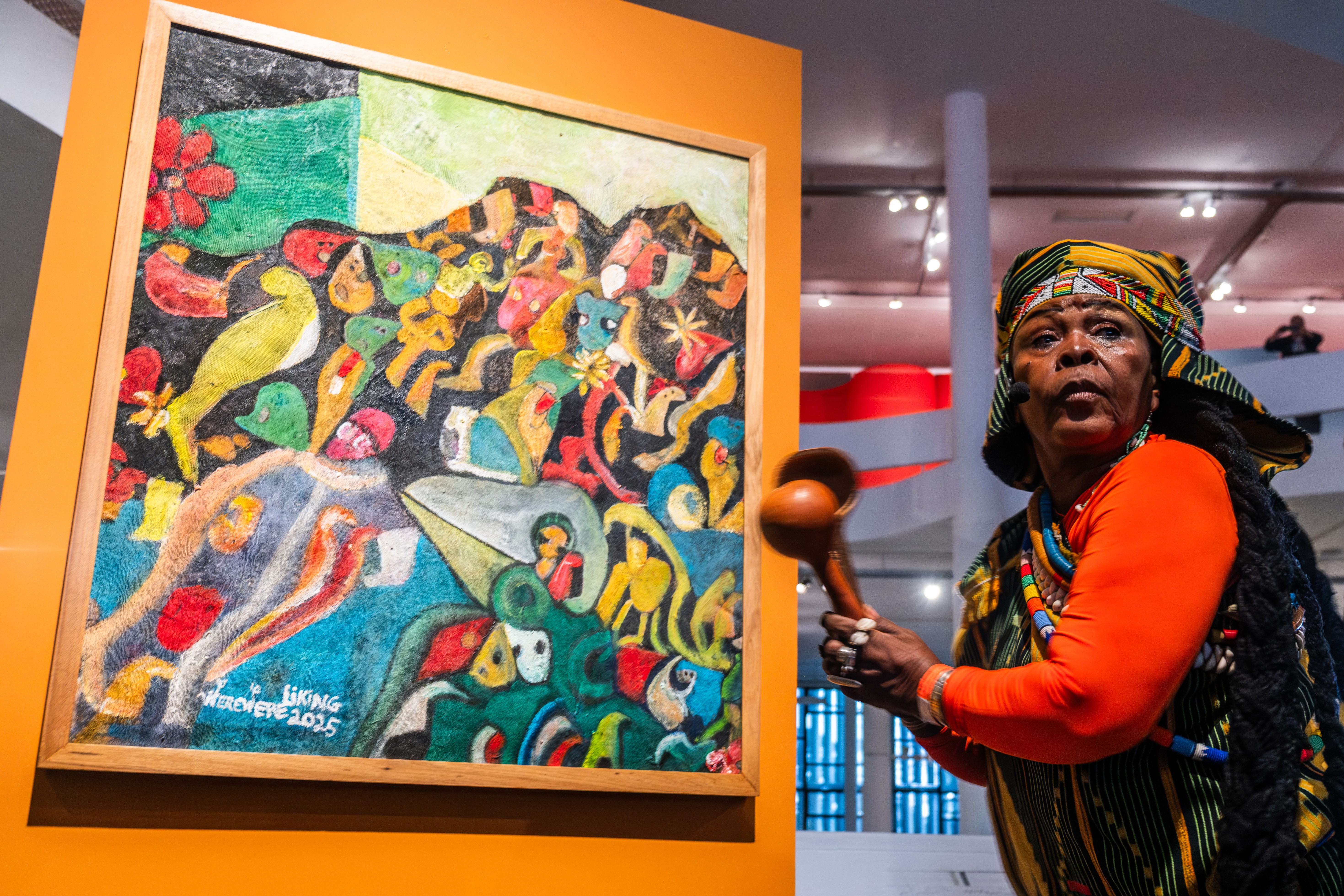
Werewere Liking: Of Spirit, Sound, and the Shape of Transmission
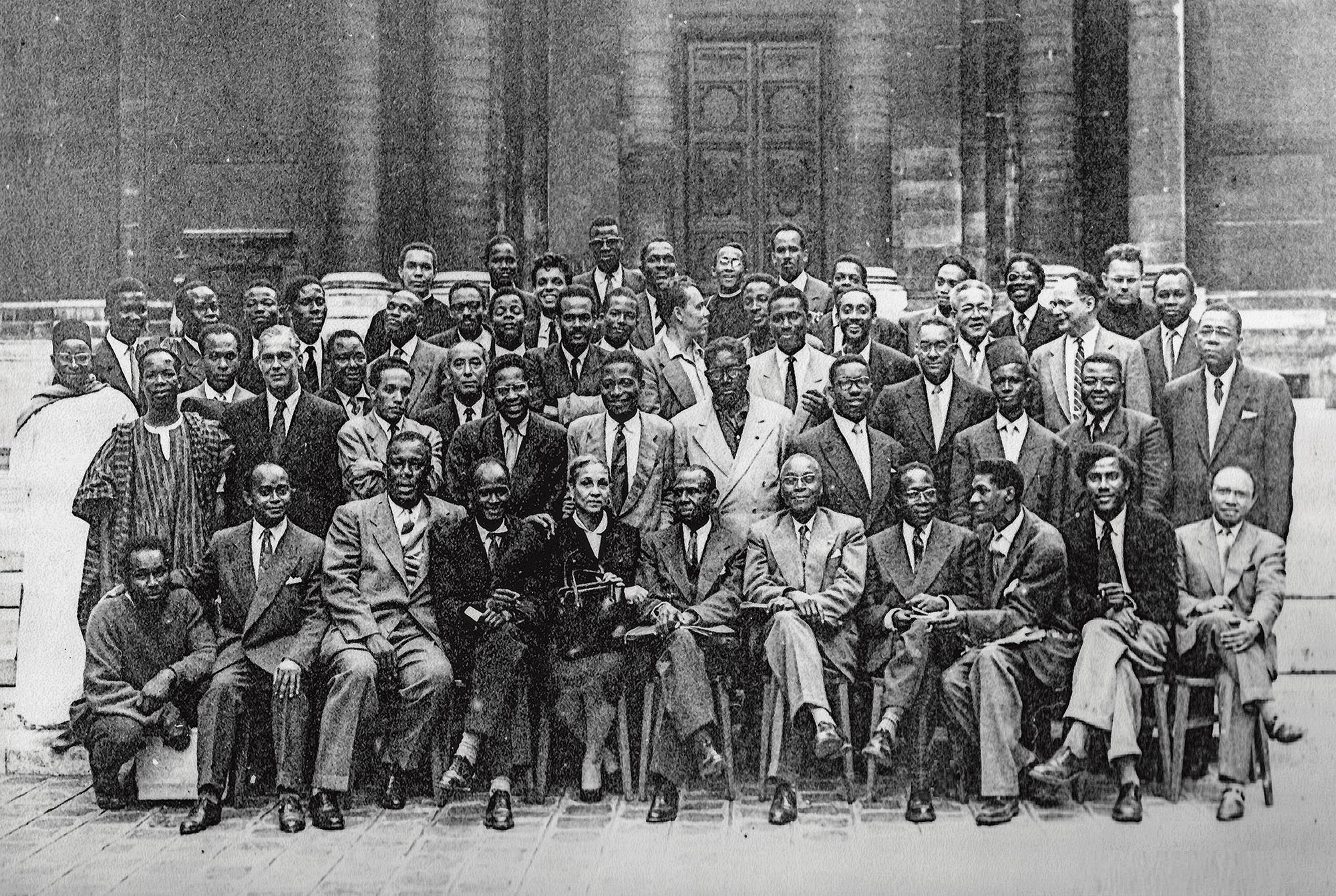
Paris Noir: Pan-African Surrealism, Abstraction and Figuration
Opinion
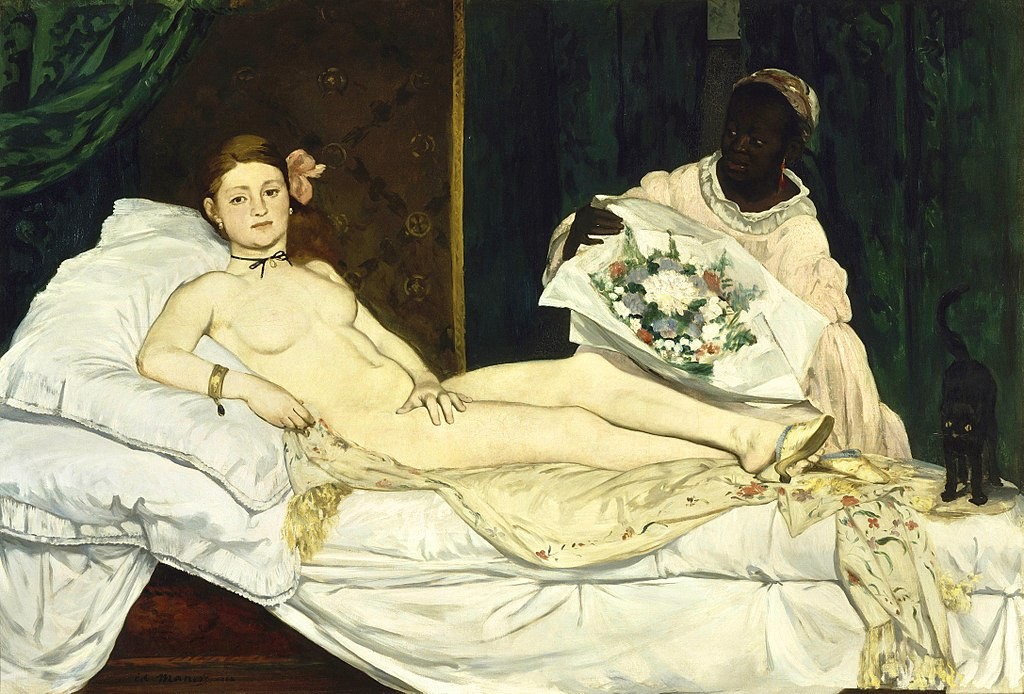
The Olympia Effect: Who Gets Credit for Sexual Liberation On/Off Screen?
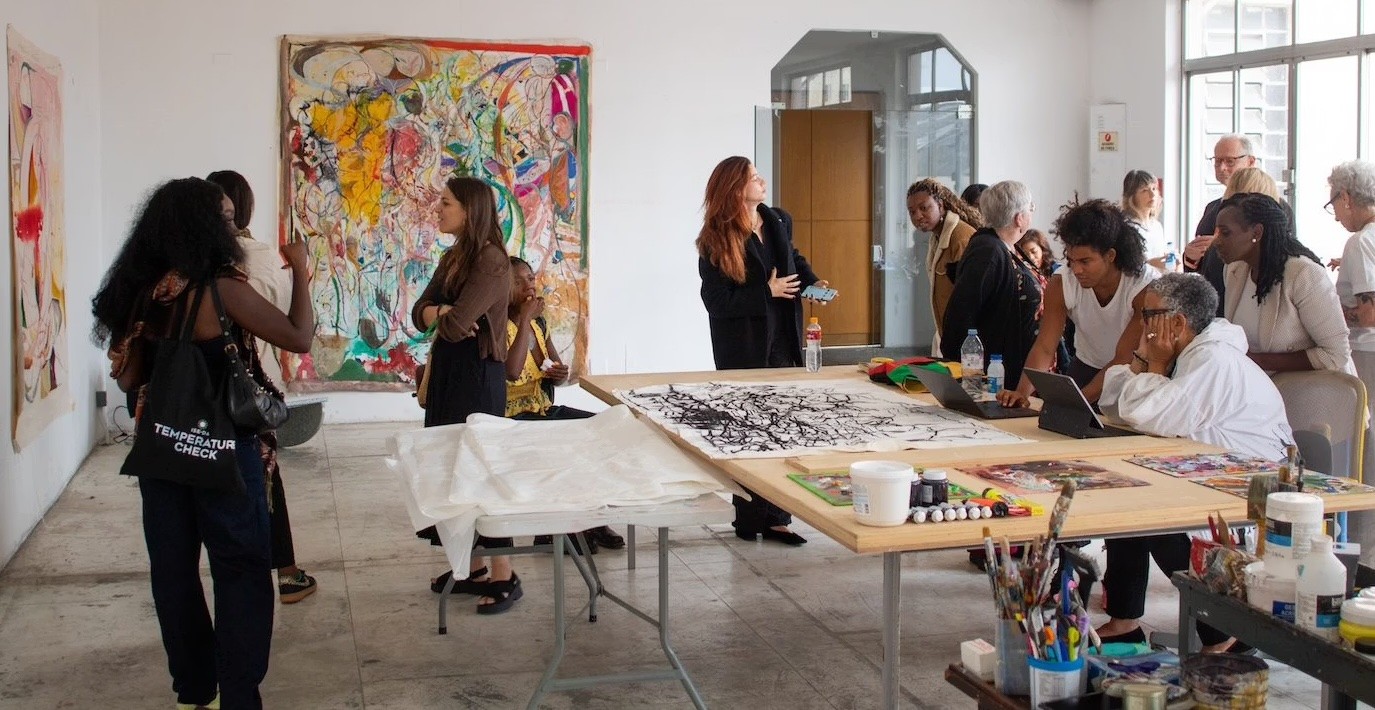
A Collector’s Guide to São Paulo
